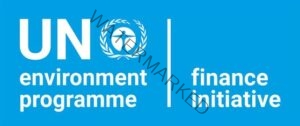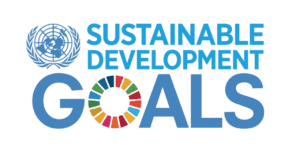Climate & Environment
Future of Affordable and Clean Energy
- Home
- Climate & Environment
- Future of Affordable and Clean Energy (SDG 7)
United Nations' Sustainable Development Goals (SDGs)
Future of Affordable and Clean Energy (SDG 7)
The quest for Affordable and Clean Energy is not just an environmental goal but a pivotal component of building a sustainable and equitable world. As part of the Seventeen Sustainable Development Goals (SDGs), SDG 7 focuses on ensuring access to reliable, sustainable, modern, and affordable energy for all. This ambition is deeply interconnected with efforts to combat climate change, reduce global inequalities, and foster durable human progress. By 2030, the world aims to meet the targets set under the UN 2030 Agenda, transforming energy systems for the benefit of both people and the planet.
The future of affordable and clean energy is a crucial focus of the global sustainability movement, as outlined by Sustainable Development Goal 7 (SDG 7) of the United Nations’ 2030 Agenda. SDG 7 strives to ensure access to affordable, reliable, sustainable, and modern energy for all, acknowledging that energy is integral to achieving many of the 17 Sustainable Development Goals. Clean energy is a critical player in addressing the world’s most pressing environmental challenges, including climate change, global warming, and the degradation of the natural environment.
The transition to affordable and clean energy is not just a technological shift but also a global movement towards a healthier planet and a more equitable future for all humanity. In this article, we explore the interplay between clean energy, environmental sustainability, and the fight against climate change, as well as the vital role energy plays in solving a myriad of environmental problems.
The Urgency of SDG 7: Affordable and Clean Energy
Affordable and clean energy is essential for human progress. Energy access drives economic growth, social well-being, and environmental sustainability. Yet, millions still lack basic energy services, which hinders development. The focus on clean, affordable energy is crucial as traditional energy sources, such as fossil fuels, contribute to global warming and environmental degradation. SDG 7 is a call to action for innovative, inclusive, and sustainable energy solutions that align with environmental conservation.
Energy transitions toward renewable sources, such as solar, wind, and hydropower, are central to realizing the goal of sustainable development. These technologies not only provide cleaner alternatives to fossil fuels but also open the door to cheaper, more accessible energy solutions. Expanding such technologies globally is key to achieving sustainability and improving living standards, particularly in underdeveloped regions.
The Nexus of Energy & Climate Change
The connection between energy and climate change is undeniable. Today, the burning of fossil fuels for energy is the primary source of greenhouse gases (GHGs), leading to the greenhouse effect and consequently, global warming. The effects of global warming and the causes of climate change are apparent through rising global temperatures, extreme weather events, sea level rise, and shifts in ecosystems. Climate change is fundamentally reshaping the natural world, and without a transition to clean energy, these impacts will only worsen.
The United Nations Environment Programme (UNEP), the Environmental Protection Agency (EPA), and other environmental bodies stress the importance of reducing GHG emissions through clean energy adoption. Clean energy technologies, such as wind, solar, and hydropower, offer a sustainable path forward by producing energy without the harmful byproducts associated with fossil fuels. This is essential to limit the catastrophic effects of climate change and safeguard the planet for future generations.
The effects of climate change are becoming more severe, impacting the most vulnerable communities around the globe. Energy production and consumption are among the largest contributors to greenhouse gas emissions, leading to environmental change and exacerbating the problem of global warming. As such, achieving SDG 7 is intrinsically linked with efforts to address the broader challenges posed by climate change.
The role of renewable energy in combating climate change cannot be overstated. Transitioning to clean, affordable energy reduces reliance on carbon-intensive energy sources, mitigating the environmental damage caused by fossil fuel consumption. The push toward clean energy also reflects the growing understanding that long-term economic growth must be decoupled from environmental harm, aligning development strategies with global climate goals.
Importance of Affordable and Clean Energy
Affordable energy is indispensable for human development, economic growth, and social well-being. However, energy that is both affordable and clean is even more critical. Inadequate energy access perpetuates poverty, inequality, and environmental degradation, particularly in developing regions. Ensuring that clean energy solutions are accessible to all is a key part of the 2030 Agenda for Sustainable Development and the United Nations Sustainable Development Goals (SDGs).
The U.S. Department of Energy and similar agencies worldwide are pushing for innovations in renewable energy to make it more affordable. These innovations are supported by initiatives aimed at improving the energy efficiency of infrastructure and promoting energy conservation. For many countries, including those with limited natural resources, the adoption of clean and affordable energy is essential for achieving sustainable development.
Environmental & Social Benefits
The transition to clean energy fosters both environmental and social benefits. It helps to preserve forests, reduce pollution, and safeguard biodiversity, thus ensuring a more harmonious relationship between humanity and nature. On the social side, access to energy drives human development, enhancing education, healthcare, and economic opportunities, especially in marginalized and rural communities.
Moreover, clean affordable energy is essential in reducing inequalities and fostering sustainable development. Energy access disparities contribute to unequal economic opportunities and health outcomes. By ensuring that all communities—particularly those in low-income or rural areas—have access to modern, reliable energy, SDG 7 promotes equity and helps to eliminate poverty. Affordable energy can improve education outcomes by providing electricity to schools, boost healthcare by powering medical facilities, and enhance economic growth through the electrification of industries and households. Major benefits of clean energy include:
- Reduction in Greenhouse Gas Emissions: Transitioning to clean energy drastically reduces GHG emissions. Solar and wind power are prime examples of energy sources with minimal environmental footprints compared to coal or natural gas.
- Mitigation of Global Warming and Climate Change: Clean energy solutions are critical for addressing the root causes of global warming. By curbing GHG emissions, the harmful effects of climate change such as sea level rise and extreme weather events can be minimized.
- Improvement of Public Health: Burning fossil fuels for energy is a major source of pollution, including air and water pollution, which harms human health. Clean energy not only reduces these pollutants but also contributes to cleaner air and water, improving overall public health.
- Social Equity: Access to clean energy empowers communities, especially in low-income areas where energy poverty persists. Reliable energy access drives education, healthcare, and economic development, contributing to a more equitable society.
Strategic Global Commitment to SDG 7
Meeting the objectives of SDG 7 requires coordinated global efforts, investments in research, and policy shifts at both local and international levels. The UNDP and the United Nations Sustainable Development Goals (SDGs) emphasize the importance of creating partnerships between governments, private sector actors, and civil society to accelerate the transition to sustainable energy. In this context, the Commission on Sustainable Development plays a crucial role in facilitating cooperation, monitoring progress, and sharing best practices.
Governments around the world are implementing policies to promote renewable energy and energy efficiency. Investments in clean technologies are rising, and innovative financing mechanisms are being developed to support energy projects in underserved areas. Public and private sector partnerships are being forged to address the dual challenge of expanding energy access while reducing the carbon footprint of energy systems.
Moreover, SDG 7 is integrally linked to other 17 Sustainable Development Goals, such as reducing poverty (SDG 1), promoting quality education (SDG 4), and addressing climate action (SDG 13). In this sense, the success of Affordable and Clean Energy is vital for achieving many of the broader sustainable development objectives.
The Role of Geoengineering
In the fight against climate change, some scientists propose geoengineering as a potential solution. Geoengineering involves large-scale interventions in the Earth’s climate systems to combat or reverse the effects of global warming. While this concept is still debated, the idea underscores the urgency of finding technological solutions to mitigate climate change.
The Role of Environmental Education and Ethics
An integral part of this transformation is environmental education. Educating communities on the benefits of clean energy, the dangers of fossil fuels, and sustainable practices is essential. Raising awareness about climate change, through campaigns like Save Our Earth, can drive public demand for cleaner energy solutions and increase participation in environmental protection initiatives.
Moreover, the future of affordable and clean energy must be rooted in environmental ethics, encouraging both individuals and corporations to act responsibly toward the environment.
Challenges & the Path Forward
While the future of clean energy holds promise, significant challenges remain. One of the primary obstacles is the high upfront cost of clean energy technologies, despite their long-term benefits. Additionally, the political and economic interests tied to the fossil fuel industry continue to slow progress.
However, global efforts like the Paris Agreement, World Environment Day, and international conferences on sustainability are gaining momentum. These initiatives stress the importance of sustainable development, focusing on reducing carbon footprints and promoting cleaner energy alternatives.
While substantial progress has been made in advancing the global energy transition, significant challenges remain. Fossil fuel dependency continues to dominate in many parts of the world, and the financial and technological hurdles to transitioning to renewable energy sources can be steep, especially for developing countries. Moreover, existing infrastructure often needs substantial upgrades to accommodate renewable energy systems.
However, these challenges are matched by tremendous opportunities. Technological innovation, from advances in energy storage to the development of smart grids, is rapidly making renewable energy more affordable and scalable. The future of affordable and clean energy (SDG 7) is pivotal for a healthier planet and a more equitable future. Clean energy solutions are key to mitigating global warming, reducing greenhouse gas emissions, and solving many of the environmental problems we face today, such as plastic pollution, deforestation, and the pollution of water resources. The path forward demands global cooperation, technological innovation, and a commitment to environmental justice.
By achieving SDG 7, the world can move closer to solving the dual crises of climate change and energy poverty, ensuring a sustainable future for all.

- Palestine Israel Conflict: A Historical Background Since 19th Century
- Global Conflict Escalation & Potential for a 3rd World War
- Social Justice: Envisioning a Futuristic Egalitarian Society
- Freedom and Democracy: Pillars of a Thriving Society
- Global Poverty Eradication Challenge & Way Forward
- Global Peace & Disarmament Challenge in the 21st Century
- Climate & Environment: Our Collective Responsibility
- Gender Equality Challenge (SDG 5)
- Quality Education for All: A Focus on SDG 4
- Future of Affordable and Clean Energy (SDG 7)
- India’s Democracy at a Crossroads: Crisis or Evolution?
17 Development Goals 17 Sustainable Development 17 Sustainable Development Goals 17 Sustainable Development Goals SDG 17 Sustainable Goals 2030 Agenda Commission On Sustainable Development Development And Sustainable Development Development Sustainable Development Durable Development MDG Millennium Development Goals MDGS Goals Millennium Development Goals SDG Development SDG Goals SDG Of UN SDGs Sustainable Development Goals SDG Sustainability SDG Sustainable SDG Sustainable Development Goals SDG Un SDG United Nation Strategic Development Goals Substantial Development Sustainability And Development Sustainability And Sustainable Development Sustainability SDG Sustainable Development Sustainable Development Goals Sustainable Development Goal SDGs Sustainable Development Project UN 2030 Agenda UNDP SDG UNDP SDGs UNDP Sustainable Development Goals United Nation SDG United Nations Organization Sustainable Development Goals United Nations SDG United Nations Sustainable Development Goals United Nations Sustainable Development Goals (SDGs) United Nation Sustainable Development Goals UN SDG UN SDGs UN Sustainable Development Goals Un Sustainable Development Goal SDG
- Home
- Act of Kindness Video Contest 2025
- Become A Volunteer
- Contact Us
- Donate Now to Support Our Cause
- Fundraising & Digital Marketing Support for Nonprofit Organizations in 2025
- Global Youth Ambassadors' Summit 2025
- News & Reports
- Our Causes
- Drinking Water for Humans & Animals of Drought-Stricken Thar Desert
- Educate a Girl in Pakistan & Give Her a Future
- Help a Family Caught in a War-Zone
- Help Protect a Child Caught in a War-Zone
- Help us Give the Gift of Sight to a Million Poor Blind Children in Pakistan
- Plant a Commemorative Tree to Help us Fight the Climate Change
- Our Mission
- Global Peace and Disarmament Challenge in the 21st Century
- Global Peace and Disarmament: Building a Safer, Inclusive, and Sustainable World in the 21st Century
- Redefining Terrorism for Lasting Global Peace
- Reforming the United Nations for Lasting Global Peace
- The Escalating Global Conflicts and the Looming Threat of a 3rd World War
- Our Vision
- World Peace Ambassadors' Summit 2025
INTERNATIONAL PARTNERS






